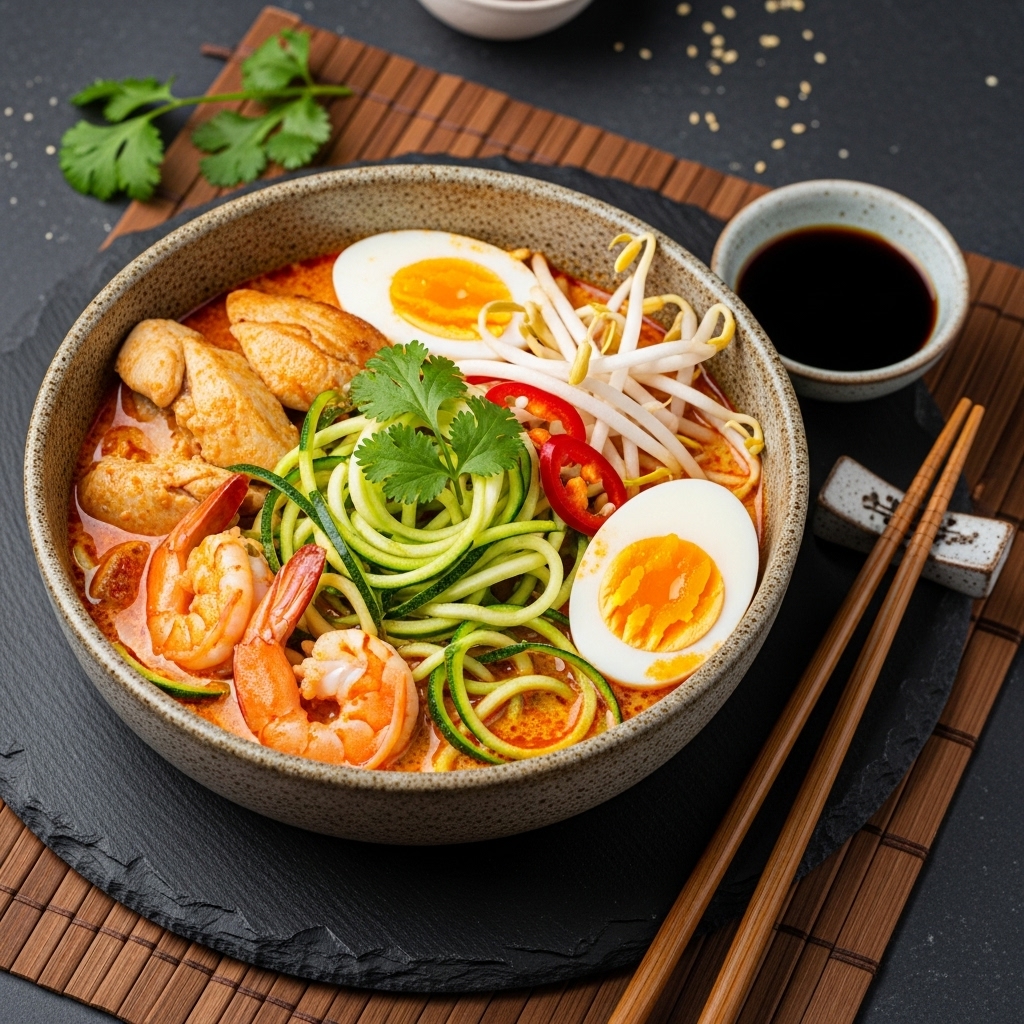
Keto Laksa with Zucchini Noodles: A Malaysian Culinary Adventure
Discover this delicious and authentic keto-friendly Malaysian Laksa recipe featuring zucchini noodles, coconut broth, and shrimp, perfect for a low-carb lunch or dinner. Savor the rich flavors of Malaysia while staying within your dietary constraints.
Allergens
None
Ingredients
- 2 medium
- sized zucchinis 1 tablespoon olive oil 1 small onion, thinly sliced 2 cloves garlic, minced 1 tablespoon fresh ginger, grated 1 teaspoon ground turmeric 1 teaspoon ground coriander 1/2 teaspoon ground cumin 1 can (400ml) coconut milk 2 cups chicken broth 6 oz. cooked shrimp, peeled and deveined 1 cup bean sprouts 1/4 cup fresh cilantro, chopped Salt and pepper to taste 1 lime, cut into wedges
Instructions
- Prepare the zucchini noodles by using a spiralizer or a sharp knife to create thin, noodle like strips. Set aside. In a large pot over medium heat, warm the olive oil and sauté the onion until softened and translucent. Add the garlic, ginger, turmeric, coriander, and cumin, stirring constantly to prevent burning. Cook for about 1 2 minutes or until fragrant. Stir in the coconut milk and chicken broth, bring to a simmer, and let it cook for 10 minutes. Add the zucchini noodles and shrimp into the pot, cooking for another 3 4 minutes or until the shrimp is cooked through and the noodles are tender but still have some bite. Season with salt and pepper to taste. Remove from heat and ladle into bowls, garnishing each serving with bean sprouts and cilantro. Serve with lime wedges on the side.
Chef’s Insight
Use freshly ground spices for a more authentic flavor and aroma.
Notes
For a spicier dish, add more chili flakes or sambal oelek to taste.
